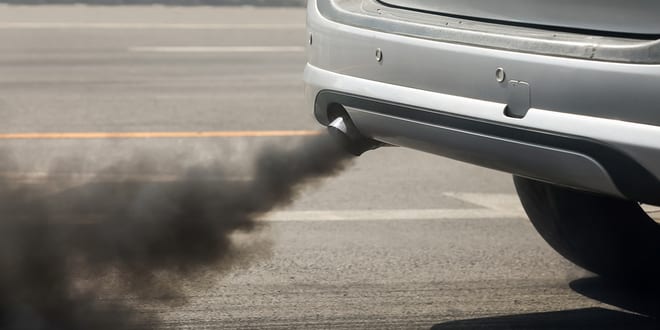Although some politicians deny the phenomenon, environmental scientists around the world are more than 95% certain that global warming – the significant increase in global surface temperatures due to human-caused emissions that in the last 70 years have been unprecedented in rate and scale – is a real danger to the world. What can be done?
Scientists at Ben-Gurion University of the Negev (BGU) in Beersheba and Michigan State University (MSU) in the US suggest that biomass fuels derived from various grasses could significantly mitigate global warming. In a paper just published in the journal Environmental Science and Technology, the researchers looked at a number of different biofuel crops produced from cellulose (the stringy fiber of plants) to test their potential as a petroleum alternative in ethanol fuel and electric light-duty vehicles.
Reducing global warming by limiting world temperature increases to 1.5 degrees Celsius requires decarbonizing vehicle fuel with bioenergy production together with carbon capture and storage (CCS). This is a technology that can capture up to 90% of the carbon dioxide (CO2) emitted during the generation of electricity and industrial processes, which prevents atmospheric increase of CO2 concentration.
Using both CCS and renewable biomass is one of the few technologies that can reduce carbon, resulting in a ‘carbon-negative’ mode – actually removing carbon dioxide from the atmosphere. For the first time, the Israeli-American research evaluates bioenergy feedstocks grown side-by-side.
The seven crops included switchgrass, giant miscanthus, poplar trees, maize residuals, restored native prairie and a combination of grasses and vegetation that grows spontaneously after fields are abandoned. “Every crop we tested had a very significant mitigation capacity despite being grown on very different soils and under natural climate variability,” said Dr. Ilya Gelfand, of the BGU French Associates Institute for Agriculture and Biotechnology of Drylands at BGU’s Jacob Blaustein Institutes for Desert Research.
“These crops could provide a very significant portion of the decarbonization of US light-duty vehicle transport [passengers cars and light trucks] to curb CO2 emissions and slow global warming. Decarbonization of transportation is critical to limit rising temperatures,” Gelfand added.
In the study, when compared with petroleum only emissions, ethanol with bioenergy was 78% to 290% better in reducing carbon emissions; ethanol was 204% to 416% improved; biomass-powered electric vehicles were 74-303% cleaner and biomass-powered electric vehicles combined with CCS was 329% to 558% better.
The study was conducted at Michigan State University’s Kellogg Biological Station and the University of Wisconsin’s Arlington Research Station, which is part of the US Department of Energy’s Great Lakes Bioenergy Research Center.
Interestingly, the crops grown at MSU did as well as those grown at the more fertile Wisconsin site. “This is significant because it means that we’re likely to be able to produce these crops on marginal lands and still get high productivity,” noted MSU Prof. Phil Robertson, a senior author of the study. “Long-term field experiments that include weather extremes such as drought, and actual rather than estimated greenhouse gas emissions, are crucial for stress-testing models assumptions.” The next phase of research is to assess other environmental and economic aspects of bioenergy crops. The best biofuel crops need to be economically attractive to farmers, don’t add more nitrogen or pesticides to the environment and are conservation-friendly.



